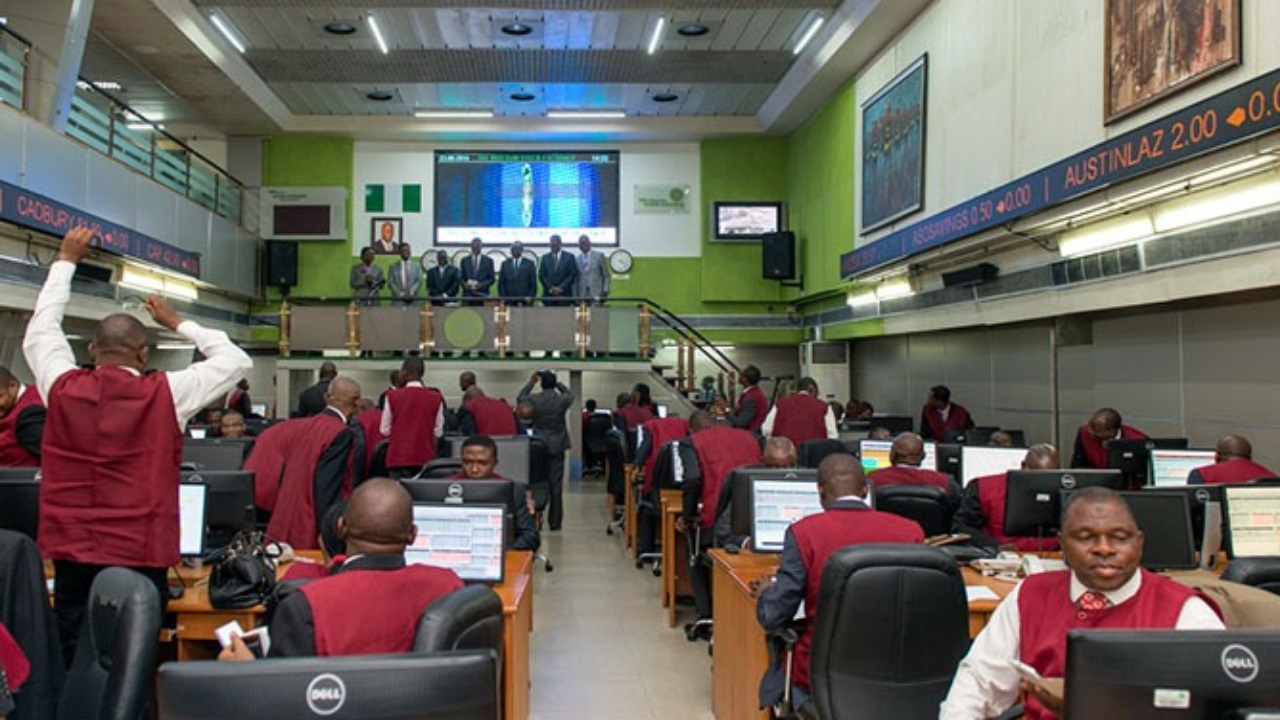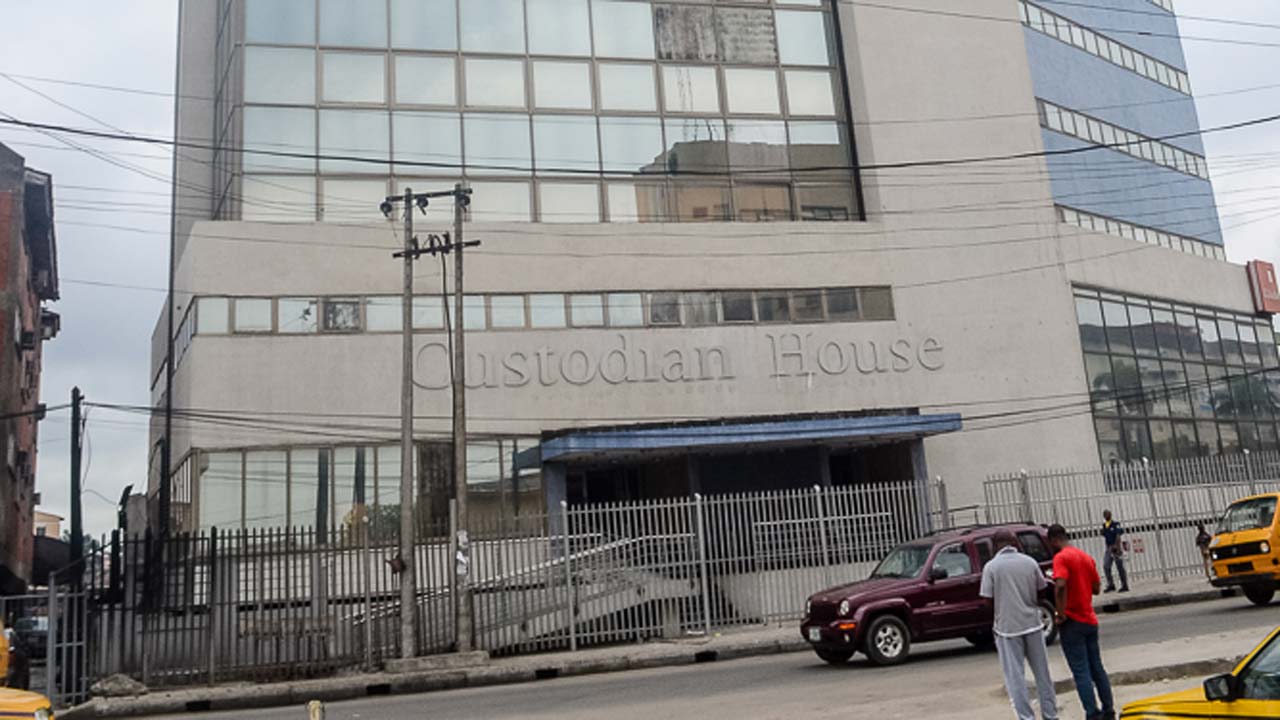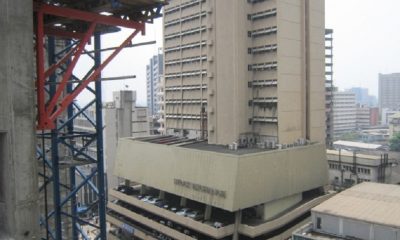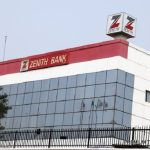Economy
Downward Momentum Persists Amid Lingering Concerns About Economy, Trade
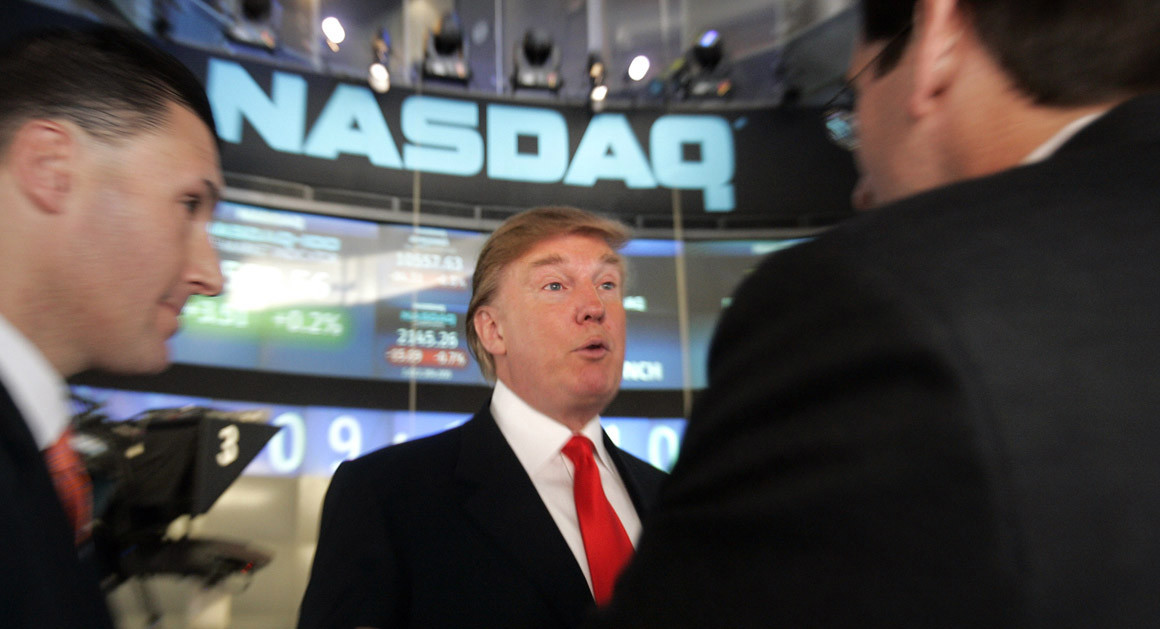
By Investors Hub
The major U.S. index futures are pointing to a lower opening on Monday, with stocks likely to see further downside following the sell-off seen last Friday.
The downward momentum on Wall Street comes amid lingering concerns about global economic growth as well as continued uncertainty about trade between the U.S. and China.
Traders may also be on edge ahead of the Federal Reserve?s highly anticipated monetary policy announcement scheduled for Wednesday.
The Fed is widely expected to raise interest rates by another quarter point, although traders are likely to closely scrutinize the central bank?s accompanying statement and forecasts for clues about future rate hikes.
Negative sentiment may also be generated in reaction to a report from the New York Federal Reserve showing a substantial slowdown in the pace of growth in regional manufacturing activity in the month of December.
Stocks have recently seen considerable volatility, however, suggesting an early move to the downside may not be the end of the day?s story for the markets.
Following the lackluster performance in the previous session, stocks moved sharply lower over the course of the trading day on Friday. The Dow and the S&P 500 tumbled to their lowest closing levels in seven and eight months, respectively.
The major averages climbed off their worst levels going into the close but remained firmly negative. The Dow plunged 496.87 points or 2 percent to 24,100.51, the Nasdaq nosedived 159.67 points or 2.3 percent to 6,910.67 and the S&P 500 plummeted 50.59 points or 1.9 percent to 2,599.95.
With the steep losses on the day, the major averages also moved lower for the week. The Nasdaq slid by 0.8 percent, while the Dow and the S&P 500 slumped by 1.2 percent and 1.3 percent, respectively.
The sell-off on Wall Street came amid renewed concerns about the outlook for global economic growth following the release of data showing disappointing industrial output and retail sales growth in China.
The latest batch of economic data showed Chinese industrial output grew at its slowest pace in nearly three years, increasing by 5.4 percent in November after growing by 5.9 percent a month earlier.
Meanwhile, retail sales in China grew 8.1 percent in November, the weakest growth since 2003. In October, retail sales were up 8.6 percent.
The slower pace of industrial output and retail sales growth was partly due to the impact of the ongoing trade dispute with the U.S.
President Donald Trump appeared to take credit for China’s disappointing economic data in a post on Twitter on Friday.
“China just announced that their economy is growing much slower than anticipated because of our Trade War with them,” Trump tweeted. “U.S. is doing very well. China wants to make a big and very comprehensive deal. It could happen, and rather soon!”
Trump seemed to reference China’s recently confirmed decision to temporarily lower tariffs on vehicles made in the U.S. to 15 percent from 40 percent.
A report showing growth in the eurozone private sector has decelerated to its slowest pace in more than four years in December added to the negative sentiment.
On the U.S. economic front, the Commerce Department released a report showing slightly weaker than expected retail sales growth in November due to a steep drop in sales by gas stations, although underlying retail sales growth remained strong.
The Commerce Department said retail sales edged up by 0.2 percent in November after spiking by an upwardly revised 1.1 percent in October.
Economists had expected retail sales to rise by 0.3 percent compared to the 0.8 percent increase originally reported for the previous month.
Meanwhile, the report said closely watched core retail sales, which exclude autos, gasoline, building materials and food services, increased by 0.9 percent in November after climbing by an upwardly revised 0.7 percent in October.
“Along with the continued strength of the labor market, the boost to real incomes from the recent plunge in gasoline prices appears to be providing a big support to spending growth, which could continue for a few more months,” said Andrew Hunter, Senior U.S. Economist at Capital Economics.
He added, “Nonetheless, with the earlier boost from tax cuts now fading and rising interest rates likely to become an increasing drag, we still expect consumption growth to slow next year.”
A separate report from the Federal Reserve showed a much bigger than expected increase in industrial production in November, but manufacturing output was unchanged.
Oil service stocks showed a substantial move to the downside on the day, extending a recent sell-off. The Philadelphia Oil Service Index plunged by 4.3 percent to its lowest closing level in fifteen years. The continued weakness among oil service stocks came amid a steep stop by the price of crude oil.
Significant weakness was also visible among pharmaceutical stocks, as reflected by the 3.4 percent slump by the NYSE Arca Pharmaceutical Index
Johnson & Johnson (JNJ) posted a steep loss after a report from Reuters said the healthcare giant knew for decades that its talcum baby powder supply contained asbestos.
Natural gas, software, retail and gold stocks also saw considerable weakness on the day amid a broad based sell-off on Wall Street.
Economy
Terrahaptix Secures Additional $22m from Investors, Valuation Hits $100m

By Adedapo Adesanya
Nigerian defence technology startup, Terra Industries, has extended its funding round to $34 million after securing an additional $22 million from investors, making it a $100 million company.
The new capital round was led by venture firm Lux Capital, with injections from the chief executive officer of Lagos-based unicorn Flutterwave, Mr Gbenga Agboola, as well as angel investors such as American actor Jared Leto and Jordan Nel.
The company said in a statement on Monday that the round was completed in under two weeks.
This comes weeks after it raised $11.75 million in January. That funding round was led by 8VC founded by the co-founder of Palantir Technologies Inc., Mr Joe Lonsdale. Other investors included Valor Equity Partners, Lux Capital, SV Angel, Leblon Capital GmbH, Silent Ventures LLC, Nova Global and angel investors, including Mr Meyer Malka — the managing partner of Ribbit Capital.
Some of the investors in the new round included 8VC, Nova Global, Silent Ventures, Belief Capital, Tofino Capital, and Resilience17 Capital, founded by Flutterwave CEO.
Terrahaptix, founded by Mr Nathan Nwachukwu and Mr Maxwell Maduka, will use the new funding to expand Terra’s manufacturing capacity as it expands into cross-border security and counter-terrorism.
The extension also comes amid growing international expansion. Earlier this month, Terra announced a partnership with Saudi industrial giant AIC Steel to launch a manufacturing hub in Saudi Arabia focused on producing infrastructure security systems.
In the coming weeks, the company also plans to unveil a mega factory, an indication of the company’s growth and importance, particularly as the need for security has risen in recent years, as groups such as Islamic State and al-Qaeda are gaining ground in Africa, converging along a swathe of territory that stretches from Mali to Nigeria.
According to Mr Nwachuku, the initial $11.75 million raise created significant momentum for the company, enabling it to close the additional $22 million in just under two weeks.
He added that beyond capital, the investors were selected for their experience building similar hard-tech and defence-focused companies.
Economy
Analysts Predict 18% Inflation Rate for January 2026

By Adedapo Adesanya
Analysts have projected that Nigeria’s headline inflation could rise to about 18 per cent in January, defying the downward trend recorded in 2025.
The forecast comes ahead of the first Consumer Price Index (CPI) data release by the National Bureau of Statistics (NBS) of 2026 due on Monday.
Headline inflation closed December at 15.15 per cent year-on-year, while the annual average eased sharply to 23.33 per cent from 33.18 per cent in 2024.
According to analysts at Cowry Research, the recent CPI normalisation has created a lower base for January comparisons, making a temporary uptick in headline inflation likely in January and possibly February. It projects inflation to trend within the 17.8 per cent to 18.7 per cent range in 2026, driven by election-related spending pressures and fading base effects, even as structural reforms support a medium-term disinflation path.
Similarly, analysts at Quest Merchant Bank said the lower base effect could push January inflation to around 18 per cent to 19 per cent. They, however, expect inflation to resume a broadly disinflationary trajectory over the course of the year, supported by softer energy prices, stable exchange rate conditions and easing food costs.
Last year’s deceleration was driven largely by base effects after the stats office normalised its CPI computation methodology. Unlike previous rebasing exercises that used a single month as the base period, the agency calculated the base using the average of all months in 2024. The rebasing also involved reweighting several categories and expanding the inflation basket to 934 items from 740.
In December alone, the NBS published two separate inflation figures for December after the CPI methodology tweaking caused the headline rate to more than double.
Nigeria’s inflation data are closely monitored by the Central Bank of Nigeria (CBN) as it transitions toward an inflation-targeting monetary policy framework.
The CBN has already factored in the CPI rebasing and related computational issues in its three-year inflation forecast.
The apex bank is targeting a slowdown in inflation to around 13 per cent by next year, despite current price pressures and statistical adjustments.
The Monetary Policy Committee (MPC) will meet next week, and today’s inflation report will form the basis for whether there will be a cut or hold in the interest rates.
Economy
Deap Capital, Access Holdings, Zenith Bank Lead Activity Chart
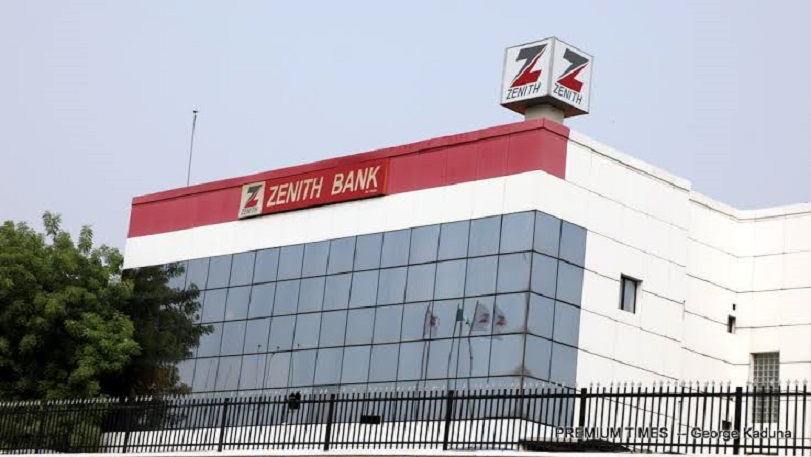
By Dipo Olowookere
The trio of Deap Capital Management & Trust, Access Holdings, and Zenith Bank led the activity chart of the Nigerian Exchange (NGX) Limited last week.
In the five-day trading week, Customs Street posted a total turnover of 4.652 billion shares worth N193.326 billion in 286,751 deals compared with the 3.860 billion shares valued at N128.581 billion traded in 240,463 deals a week earlier.
According to data, financial services equities dominated the activity chart with 2.782 billion units sold for N74.063 billion in 104,325 deals, contributing 59.81 per cent and 38.31 per cent to the total trading volume and value, respectively.
Services stocks recorded the sale of 573.189 million units worth N7.177 billion in 28,784 deals, and consumer goods shares exchanged 317.667 million units valued at N24.027 billion in 33,280 deals.
Deap Capital, Access Holdings, and Zenith Bank accounted for 980.253 million shares worth N30.182 billion in 25,390 deals, contributing 21.07 per cent and 15.61 per cent to the total trading volume and value apiece.
Business Post reports that 79 equities appreciated versus 71 equities in the previous week, as 27 stocks depreciated versus 35 stocks in the previous week, while 42 shares closed flat, the same as the previous week.
Zichis was the best-performing stock after it gained 60.71 per cent to trade at N10.80, Union Dicon appreciated by 60.15 per cent to N20.90, DAAR Communications grew by 55.26 per cent to N2.95, Fortis Global Insurance rose by 50.00 per cent to 39 Kobo, and John Holt grew by 45.21 per cent to N10.60.
On the flip side, Abbey Mortgage Bank lost 26.42 per cent to quote at N11.00, Sovereign Trust Insurance shrank by 17.16 per cent to N2.80, Ecobank declined by 13.29 per cent to N45.00, SAHCO went down by 11.59 per cent to N135.00, and Austin Laz depleted by 11.11 per cent to N4.80.
Last week, the All-Share Index (ASI) and the market capitalisation appreciated by 6.16 per cent to 182,313.08 points and N117.027 trillion, respectively.
In the same vein, all other indices finished higher with the exception of the sovereign bond index, which fell by 0.01 per cent.
-

 Feature/OPED6 years ago
Feature/OPED6 years agoDavos was Different this year
-
Travel/Tourism10 years ago
Lagos Seals Western Lodge Hotel In Ikorodu
-

 Showbiz3 years ago
Showbiz3 years agoEstranged Lover Releases Videos of Empress Njamah Bathing
-

 Banking8 years ago
Banking8 years agoSort Codes of GTBank Branches in Nigeria
-

 Economy3 years ago
Economy3 years agoSubsidy Removal: CNG at N130 Per Litre Cheaper Than Petrol—IPMAN
-

 Banking3 years ago
Banking3 years agoSort Codes of UBA Branches in Nigeria
-

 Banking3 years ago
Banking3 years agoFirst Bank Announces Planned Downtime
-

 Sports3 years ago
Sports3 years agoHighest Paid Nigerian Footballer – How Much Do Nigerian Footballers Earn


